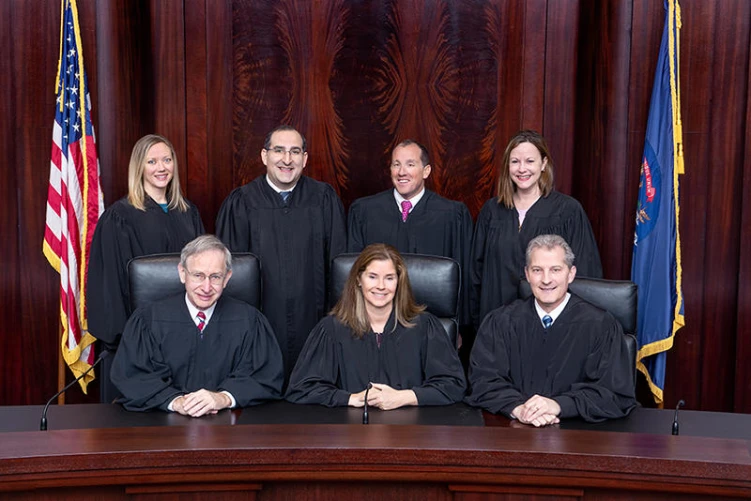• Felony is a crime with severe penalties such as imprisonment, fines, etc.
• Different felony categories have distinct sentencing guidelines, with Class A felony being the most severe.
• Violating immigration, drug, securities, and tax laws can lead to criminal charges and fines.
• A felony conviction can lead to a criminal record, loss of employment, difficulty finding housing, ineligibility for government benefits, and more.
• A defendant accused of a felony must get an attorney to represent them and challenge evidence.
Several terms can be confusing regarding criminal law, especially for those unfamiliar with the legal system. One such word is a felony. A felony is considered more serious than a misdemeanor, resulting in severe penalties such as lengthy prison sentences, hefty fines, and more.
Understanding what a felony is and its different categories is crucial for anyone facing criminal charges, studying law, or simply interested in the topic. Here’s a comprehensive overview of what a felony is, its different types, and some of the consequences that follow.
What is a Felony?
A felony is a crime that involves severe misconduct and is generally punishable by a minimum of one year in prison, along with other penalties. Common examples of felonies include murder, rape, arson, robbery, and drug trafficking. The severity of the crime determines the duration of the prison sentence and the fine amount. Felony charges can have consequences that last a lifetime, such as being disqualified from voting, obtaining specific professional licenses, and owning firearms.
Types of Felonies
Felonies are divided into several categories, such as Class A, B, C, D, and E, in some states. Every type has distinct sentencing guidelines, with Class A felony being the most severe. Examples of Class A felonies include murder, while Class E felonies could consist of such offenses as theft of property or fraud.
Federal Laws That Can Lead to Felonies
Breaking federal laws can also lead to felony charges. Here are some of them:

Immigration Laws
If you are an immigrant, you need to be aware of the immigration laws in the United States. Violating these laws can have severe consequences, such as deportation and being barred from entering the country again. For example, lying on your visa application can lead to being denied entry into the country or deported if you already reside here.
Drug Laws
Drug laws are very strict in the United States. Possessing, trafficking, or manufacturing illegal drugs can lead to fines and imprisonment. Even possessing certain drugs without a valid prescription can lead to criminal charges.
Securities Laws
The Securities and Exchange Commission (SEC) regulates the securities industry to protect investors and maintain fair and orderly markets. Violating SEC rules can lead to criminal charges and hefty fines. Insider trading, accounting fraud, and misrepresenting financial information are all violations that can land you in trouble with the authorities.
Tax Laws
The Internal Revenue Service (IRS) expects every taxpayer to file their taxes accurately and pay the correct amount of tax owed. Trying to cheat the system by not declaring all your income, exaggerating deductions, or claiming false expenses is illegal and can lead to serious legal consequences.
Consequences of a Felony Conviction
The consequences of a felony conviction are far-reaching and can be life-altering, even after release from prison. A felony conviction can lead to a criminal record, loss of employment, difficulty finding housing, ineligibility for government benefits, and more. Felons may also face difficulties starting businesses and obtaining loans.

The Felony Process
The process of being charged with a felony involves several steps. The process typically begins with an arrest, followed by the arraignment in which the defendant is formally charged with a felony. The next step is the trial, where the prosecution must prove that the defendant is guilty beyond a reasonable doubt. The judge will schedule the sentencing hearing if the jury convicts the defendant. The judge considers various factors before imposing the sentence.
Defenses
A defendant accused of a felony can defend themselves in several ways. The defense options include self-defense, insanity, mistake of fact or law, and entrapment. Depending on the case’s specifics, some defenses may have a higher success rate than others.
The defendant must get an attorney to represent them. An experienced criminal defense attorney can give various advantages to a defendant, especially one wrongfully charged. First, they can provide legal advice and representation throughout the whole process. They can challenge evidence, cross-examine witnesses, and make motions to reduce or dismiss charges.
The felony is a serious crime that carries severe penalties. It is vital to understand that the classification of a felony varies by state, and the consequences of a felony conviction can be far-reaching, affecting several areas of the individual’s life. Being accused of a felony can be a daunting experience, but with the right understanding of the process and adequate legal support, it is possible to navigate the situation successfully.



